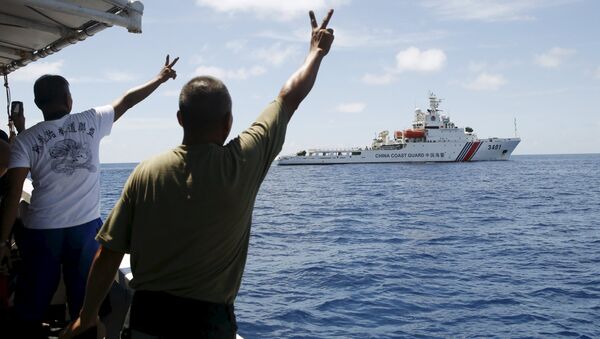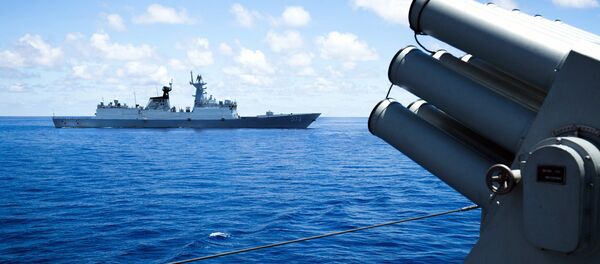The Association of Southeastern Asian Nations (ASEAN) has made "progress" on reaching an accord in the South China Sea, according to the Philippines’ Foreign Ministry, and a final agreement could be made as soon as August.
Rating their progress, Philippine Acting Foreign Minister Enrique Manalo said "we are at a very high level" since communications on a code of conduct in the South China Sea began in January.
"I think China still believes, is still in the position that [the code of conduct] shouldn’t be legally binding," Manalo said. This could become a sticking point, as Manalo thinks there should be a clause that makes the new code obligatory.
Alternatively, China could be using the legally binding clause to improve its leverage in the negotiation process. From a deliberations standpoint, "it’s a little bit early to say," Manalo said on Monday.
The diplomat was optimistic that half of the elements within the code of conduct have been agreed upon by China and ASEAN. "We were starting from zero in January," he says. On March 7, Chinese Foreign Minister Wang Yi announced the completion of an initial draft for the code.
Beijing has insisted that arguments over claims in the South China Sea should be left to nations in the immediate region, without Western intervention. The ASEAN nations include Brunei, Cambodia, Indonesia, Laos, Malaysia, Myanmar, the Philippines, Singapore, Thailand and Vietnam.
A host of countries have expressed disdain for what they claim is China’s militarization of islets in the South China Sea, which will likely render it a sensitive point as the 11 nations seek convergence on a regional agreement. The group of 14 islets, islands and cays, plus some 100 reefs, comprising the Spratly Island group, for example, is claimed by Taiwan, China, Vietnam, Brunei and Malaysia.
Chinese leaders have asserted that its military installments in the Spratly Islands are for routine defense purposes.



